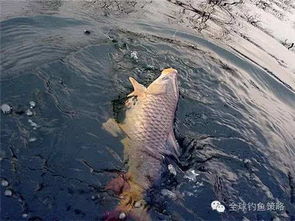Introduction
Water fishing, an ancient and cherished pastime, has been captivating anglers for centuries. Whether you're a seasoned fisherman or a beginner, mastering the art of water fishing can transform your fishing experience. In this article, we will delve into the essential techniques for water fishing, focusing on how to钓 (catch) fish effectively. From choosing the right equipment to understanding fish behavior, we'll cover everything you need to know to become a proficient angler.

Choosing the Right Equipment
The foundation of successful water fishing lies in selecting the appropriate equipment. Here are some key components to consider:
1 Rod and Reel
The rod and reel combination is the heart of your fishing setup. Choose a rod that matches the type of fish you're targeting and the conditions of the water. For instance, a lightweight rod is ideal for panfish, while a heavy-duty rod is better for larger species like bass or catfish. Ensure the reel is compatible with your rod and has the appropriate drag system to handle the fish you're aiming to catch.
2 Line
The type of line you use depends on the fish species and the environment. Monofilament line is versatile and easy to use, while fluorocarbon line is nearly invisible underwater, making it ideal for fishing in clear water. Braided line offers high strength and sensitivity but is more visible and can be harsh on the fish's mouth.
3 Lures and Baits
The choice of lures and baits can significantly impact your success. Live bait, such as worms, minnows, or crickets, can be effective for many species. Artificial lures, like spinners, jigs, and crankbaits, mimic the movement of real fish and can attract a wide variety of species.
Understanding Fish Behavior
To catch fish, you need to understand their behavior. Here are some key points to consider:
1 Fish Habitat
Fish tend to congregate in specific areas, such as around rocks, logs, or submerged structures. Familiarize yourself with the local fish habitat to increase your chances of finding them.
2 Fish Feeding Patterns
Fish feed at different times of the day. Morning and evening are often the best times for fishing, as this is when fish are most active. However, some species may feed throughout the day, so it's essential to research the specific habits of the fish you're targeting.
3 Water Temperature and Condition
Water temperature and condition play a crucial role in fish behavior. Fish are less active in cold water and more active in warm water. Additionally, water clarity and oxygen levels can influence where fish are located.
Casting and Retrieval Techniques
Once you've located potential fish, it's time to cast and retrieve your bait or lure. Here are some essential casting and retrieval techniques:
1 Casting
Practice your casting technique to ensure you can accurately place your bait or lure in the water. There are various casting techniques, such as the overhead cast, sidearm cast, and roll cast. Choose the one that best suits your needs and practice until you're comfortable with it.
2 Retrieval
The way you retrieve your bait or lure can greatly affect your chances of catching fish. For example, a slow and steady retrieve can attract fish that are feeding on the surface, while a faster retrieve may attract fish that are deeper in the water column.
Bait Presentation
The way you present your bait or lure is crucial for attracting fish. Here are some tips:
1 Natural Presentation
Try to mimic the natural movement of the fish's prey. For example, if you're using a worm, wiggle it gently to mimic the movement of a real worm.
2 Color and Size
The color and size of your bait or lure can also influence your success. Some fish are more attracted to certain colors, while others may prefer specific sizes. Experiment with different colors and sizes to see what works best in your particular fishing environment.
Patience and Persistence
Finally, remember that fishing requires patience and persistence. Don't get discouraged if you don't catch fish immediately. Keep experimenting with different techniques and locations until you find what works best for you.
Conclusion
Water fishing is an enjoyable and rewarding activity that can be mastered with practice and dedication. By choosing the right equipment, understanding fish behavior, mastering casting and retrieval techniques, and being patient, you'll be well on your way to becoming a proficient angler. So, grab your gear, head to your favorite fishing spot, and start catching fish like a pro!












